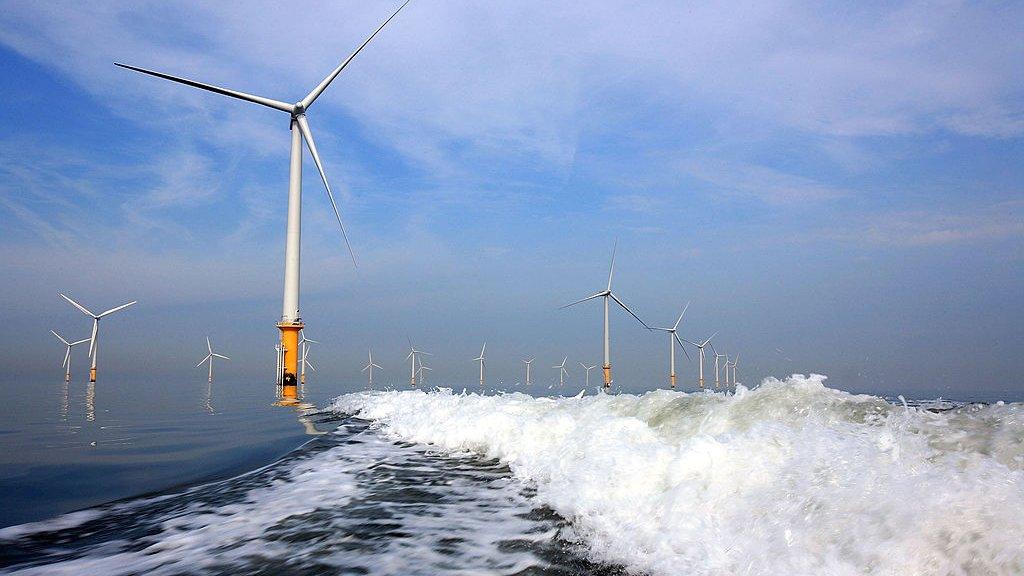UK enjoyed 'greenest year for electricity ever' in 2017
- Published

Wind farms helped the UK experience its first coal-free day since the Industrial Revolution
The UK has achieved its greenest year ever in terms of how the nation's electricity is generated, National Grid figures reveal.
The rise of renewable energy helped break 13 clean energy records in 2017.
In June, for the first time, wind, nuclear and solar power generated more UK power than gas and coal combined.
Britain has halved carbon emissions in the electricity sector since 2012 to provide the fourth cleanest power system in Europe and seventh worldwide.
In April, the UK had its first 24-hour period without using any coal power since the Industrial Revolution.
The government is committed to phasing out unabated coal by 2025 as part of efforts to cut the UK's greenhouse gas emissions in line with legal obligations.
Separate findings from power research group MyGridGB show that renewable energy sources provided more power than coal for 90% of 2017, figures up to 12 December show.
British wind farms produced more electricity than coal plants on more than 75% of days this year.
This changing landscape saw the cost of offshore wind power fall below the price of nuclear for the first time.
'Dangerously exposed'
But despite the successes, groups warned the UK must now tackle its reliance on gas if it is to meet its emission targets.
The daily output of gas was outstripped by wind on just two days of the year.

The UK must reduce its gas use to reach its emission targets
Renewables overall - including wind, solar, biomass and hydropower - beat fossil fuels for only 23 days of the year.
Dr Andrew Crossland from MyGridGB and the Durham Energy Institute said: "The government has focused on reducing coal use which now supplies less than 7% of our electricity.
"However, if we continue to use gas at the rate that we do, then Britain will miss carbon targets and be dangerously exposed to supply and price risks in the international gas markets."
He added that "refreshed government support for low carbon alternatives" is now needed to "avoid price and supply shocks for our heat and electricity supplies".
Emma Pinchbeck, executive director of Industry body RenewableUK, called for "more boldness" from the government.
She urged onshore wind to be developed across the UK in an "ambitious sector deal with the off shore wind industry" that could help secure a "golden age for renewables" in 2018.
An Energy Department spokesman said the UK was reducing emissions faster than any other G7 country - which includes the US, Japan, Germany, Italy, France and Canada.
He said the government plans to reduce carbon emissions throughout the 2020s, while supporting the creation of well-paid jobs in the low carbon sector.
"The UK is a world leader in clean growth," he said.
- Published16 November 2017

- Published11 September 2017
